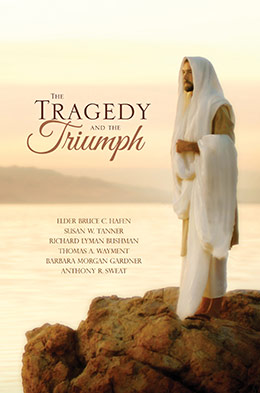The Atonement, Then and Now
Richard L. Bushman
Richard Lyman Bushman, "The Atonement, Then and Now," in The Tragedy and the Triumph, ed. Charles Swift (Religious Studies Center, Brigham Young University; Salt Lake City: Deseret Book, 2019), 49–64.
Richard Lyman Bushman was Gouverneur Morris Professor of History Emeritus at Columbia University when this was written.
When I was a young man, I didn’t know what to think about the Atonement of Jesus Christ. Everything I heard led me to believe it was central to worship and thought in The Church of Jesus Christ of Latter-day Saints, yet it did not make much difference to me. So far as I could tell, the Atonement had two effects. One was to guarantee resurrection for all mortals. The second was to grant forgiveness to everyone who repented and believed in Christ. That is how I read Amulek’s discourse on the Atonement in the 34th chapter of Alma. Both were important blessings, but neither figured very much in my personal worship. The resurrection, the first blessing of the Atonement, occurred automatically without any effort on my part. I could be grateful for the gift, but it was to be received in the distant future and did not require anything of me now. Resurrection was more a formality and offered little reason to think of Christ day by day. Forgiveness, the second blessing, required that I repent, and once that was accomplished, Christ guaranteed that I would be accepted by the Father at the last day. Christ would be standing there at the judgment seat to assure the Judge that I was okay. The Savior would make all the difference at judgment but not right now. The effort now was all directed at overcoming my sins (something I had trouble accomplishing). Getting over the sins was the big hurdle. Once that was done, Christ would take care of the rest. Repentance preoccupied me now; for the time being, I didn’t have to think much about Christ.
So why was Christ the center of life, I asked myself, if perfunctory faith in Christ sufficed and he intervened mainly after death? I could not see how our doctrine compelled me to love Christ or think of him very much. He was there, ready to lend a hand when it came time to be resurrected or to get the Judge’s official approval. I was grateful for both blessings but saw no reason to think much about the Savior. His functions were legalistic; he served no purpose in my everyday affairs.
Over the years, my views of Christ changed, helped by a new appreciation of Christ among my brothers and sisters. I began to use the phrase the Atonement in everyday life, which, by implication, was in contrast to Christ at judgment or the resurrection. It slowly dawned on me that the Atonement came into play more broadly than I had imagined and was vital all the time, not just at the end. It was not something that took effect only when we were resurrected or at the judgment seat. Going beyond those undoubted blessings, the Atonement helped with all the pains of life, the foolish errors we make, the hurts we inflict, our defeats, our fears, our failures. Wherever we fall short or suffer or fall down, Christ is there to pick us up, mend us, strengthen us, and send us on our way. Far from being a remote event that took hold mainly at the end of life, the Atonement applies to all the things that concern me most, all my struggles and striving, my everyday hopes and fears.

I cannot really say how this enlarged view of the Atonement came to be. For a while, I thought I had worked this out on my own and had to persuade other Latter-day Saints to think this way. Then as I listened more closely, I realized that lots of people were coming around to this point of view. It was being preached from the pulpit all the time.
Comprehensive Atonement went along with the renewed emphasis on grace. When I was young, the doctrine of grace was foreign to Latter-day Saints. Grace was Paul and Protestant; the restored gospel of Jesus Christ was James and works. I remember thinking grace was a dangerous doctrine. The idea of a free gift was too much like welfare aid. It would deplete the incentive to work. In contrast to Pauline grace, we believed back then in making lists of virtues as Benjamin Franklin famously did and striving to incorporate them through force of will. Willpower was a big phrase for me. You pretty much had to do it all yourself. When I went wrong, I blamed it on a lack of willpower. Grace might be an embellishment at the end of life but was not vital to finding God day by day now.
Under the Atonement-in-everyday-life principle, I saw the Atonement as more of a free gift to a person unable to overcome sin unaided. The aid I was seeking was more like Protestant grace, something I could not really earn but desperately needed. I could not redeem myself by force of will. Willpower was precisely what I lacked. I needed help from beyond myself, an augmentation of strength, something I desired but was not worthy of. What I needed was grace.
As the applications of the Atonement grew in scope, the sacrament prayers assumed new importance in my thinking. Sometimes people talk about their favorite scripture. As I see it, the favorite scripture of our Church services are the two sacrament prayers found in Doctrine and Covenant 20:77 and 79. These are the scriptures we hear in Church more than any other. Nearly every Sunday, they are spoken by the priests kneeling behind the sacrament table. We are all enjoined to pause, clear our minds, and listen to those prayers in silence. Their message, apparently, is one that the Lord wants lodged in our hearts.
I now think quite a bit about how to “remember Him always.” According to the sacrament prayer, that is the key to having his Spirit with us always. If we could learn how to remember Christ always, we would be much better off. If we had his Spirit with us always, we would be more intelligent. Our instincts would always tend toward goodness. We would be kind and helpful. We would think of other people more than ourselves. We would be strong and confident. The Atonement in everyday life would really amount to something if we could live a life dictated by the Spirit of God.
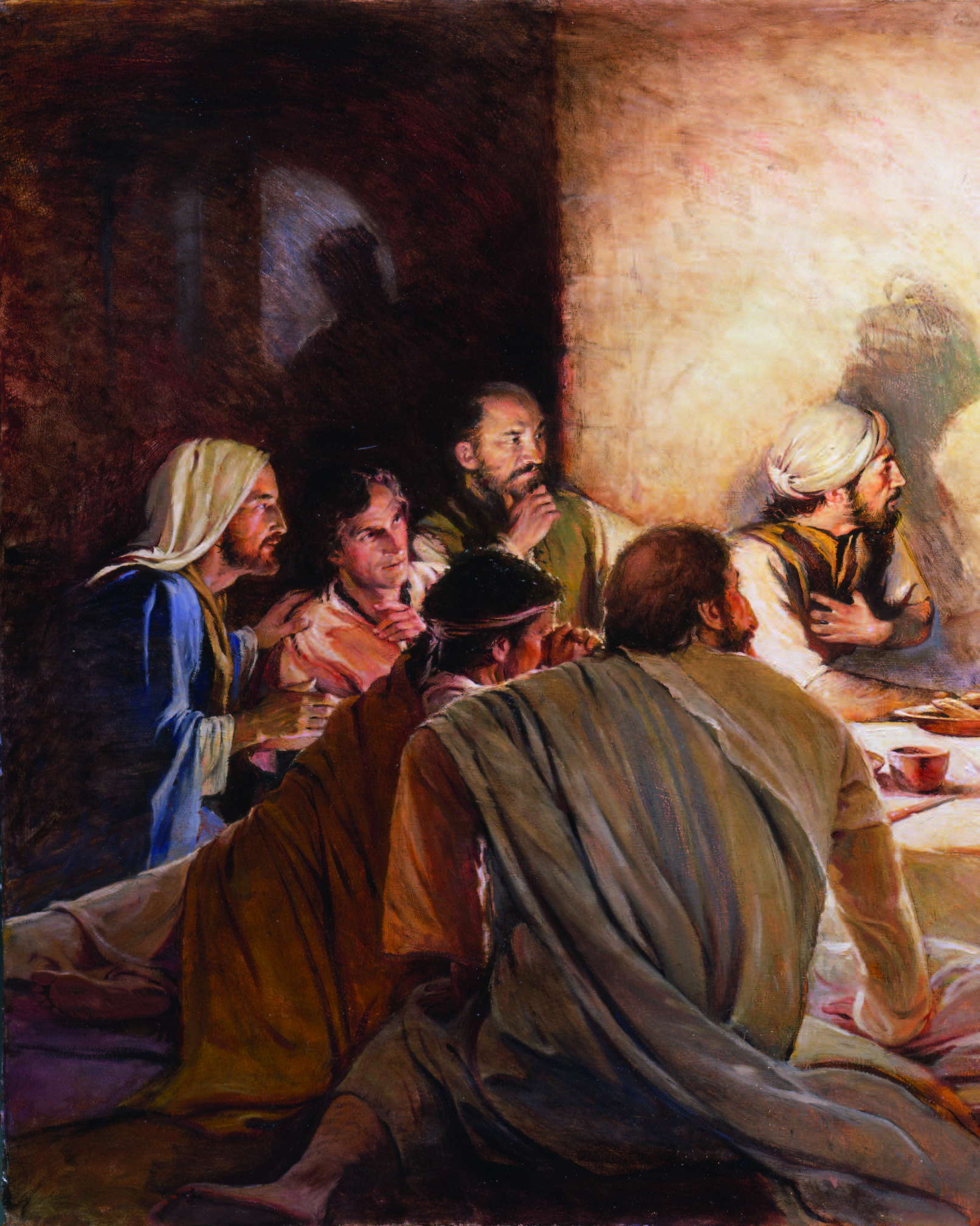
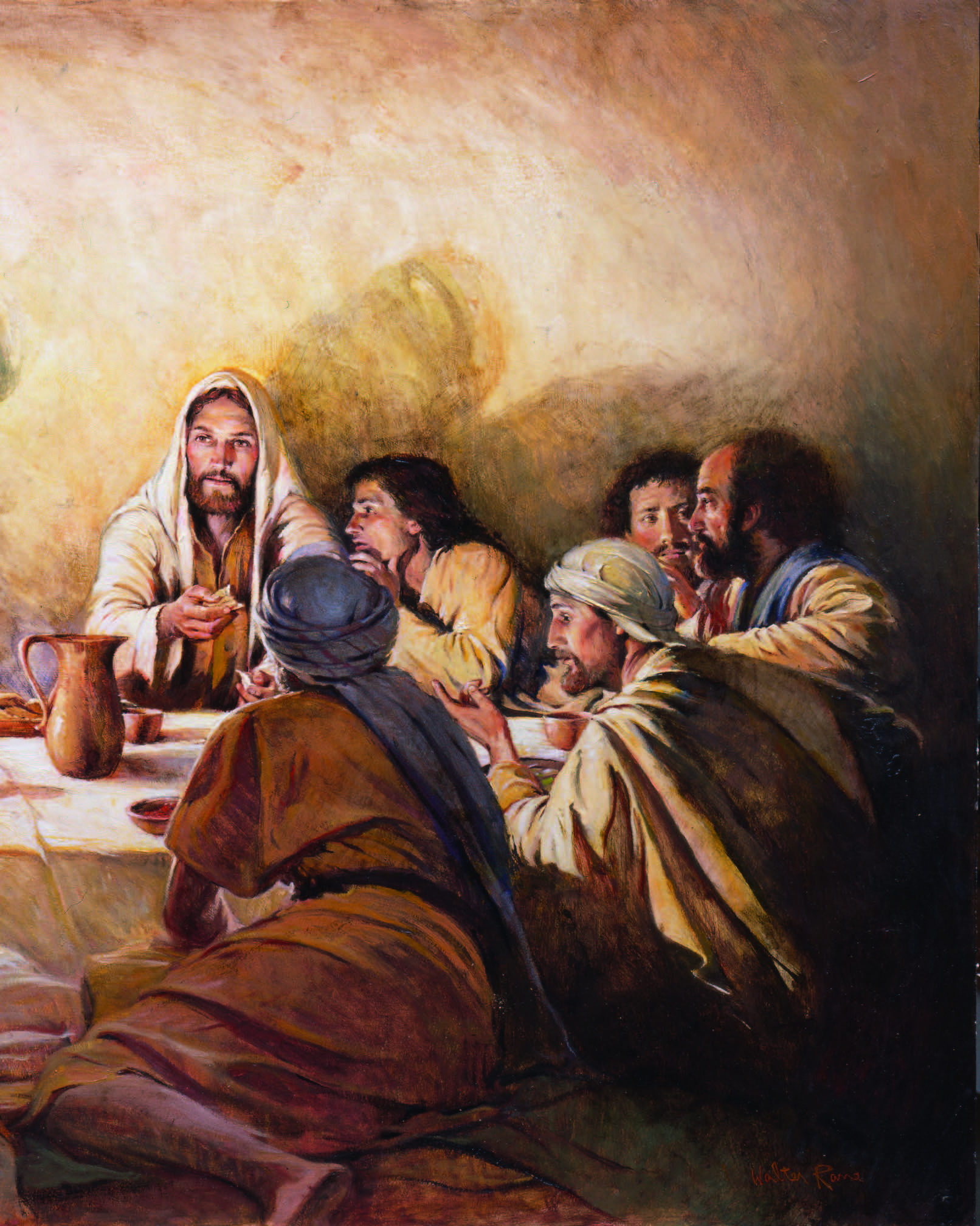
When I talk to people who are losing faith in the Church, I put these two prayers to work. I often talk to members whose faith has been undermined by historical problems or who disagree with some Church policy. They have concrete objections to this event in Church history, or that action by Church leaders. Once I used to try to answer their objections with a counterargument. I thought that if I could resolve their problems their faith would return. But I found through experience that they would either disagree with me or, if I persuaded them, raise another objectionable point. They had more issues than I could possibly deal with, and no matter what I said, they showed no signs of reversing course.
Frustrated, I came around finally to asking them a simple question: How do you feel about Jesus Christ. In some ways it seemed beside the point. They were dealing with something specific. What difference did Christ make? On the other hand, the question seemed to go to the heart of the matter. If they said Christ meant everything to them, I said you will be all right. Follow your instincts, and you will arrive at the truth. On the other hand, if they said they had lost faith in Christ along with their faith in Joseph Smith, I knew the problem went deeper. It appeared that this second group had built their faith on Joseph Smith and Church history and when that crumbled, the whole structure collapsed. They lost faith in God as well as in Joseph Smith. We had failed them in making Joseph the foundation on which everything rested and not teaching Christ first.
Oftentimes, spiritual and intellectual problems are put in a new light if we focus on Christ. If a person’s religion consists only of the words in the sacrament prayer, she probably has a pretty firm foundation on which to build. Taking on his name, covenanting to keep his commandments, and, above all, remembering him always can do a lot to keep a person alive spiritually.
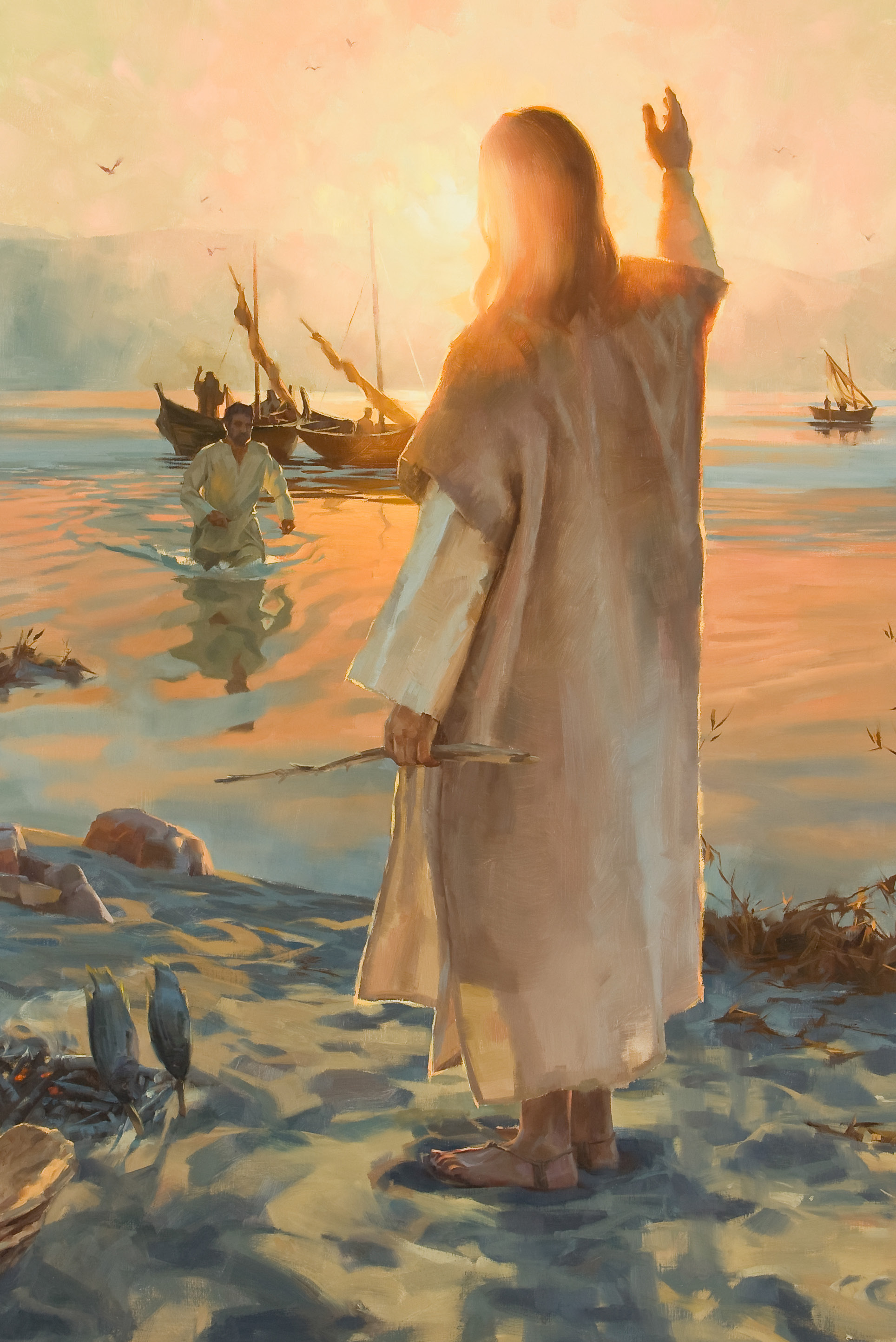 David Koch, Feed My Sheep.
David Koch, Feed My Sheep.
At certain points in life, faith in Christ can be a lifesaver, especially for teenagers. Over the years as a bishop, a stake president, and as a father, I realized that most teenagers live double lives. They live a life that is visible to their parents, their Sunday School teachers, and their bishops, perhaps even to their Church friends. There is also another life, a hidden life, known only to themselves or a few friends. The first life is the one that their parents and Church leaders have taught them to live. The second is the one that begins to develop in their teen years. Often it has to do with sexual experiences of one kind or another, but it can be lying, stealing, cheating, or breaking the Word of Wisdom. It may be terrible struggles with friends or a teacher. This is the concealed life that they keep hidden from view. This life may cause the teenager to feel terribly guilty, or perhaps to enjoy forbidden pleasures in rebellion against the oppressive adult world, or to feel alone and helpless.
As this secret life develops, the young person is divided. He or she makes one thing known to the adults while living another life below the surface. Knowing he is a hypocrite, he thinks everyone is a hypocrite. Kids in this position may become sullen and resentful, resistant to Church involvement or family occasions. They may withdraw and refuse to communicate. They think the conventional life is stupid or oppressive. Others may keep up a good front and really want to be upright but are still drawn in one degree or another to the dark side. They all suffer from guilty consciences.
This double life is unstable and calls for change, but young people encounter a structural obstacle in Church teachings. Sometimes the Church actually makes it hard to repent. In an effort to protect young people against sin, teachers erect walls around their charges. They warn them of the dangers of sin and the beauties of righteousness. They try to make it as hard as possible to trespass into regions of darkness. They make the wall higher and thicker, ever more impregnable.
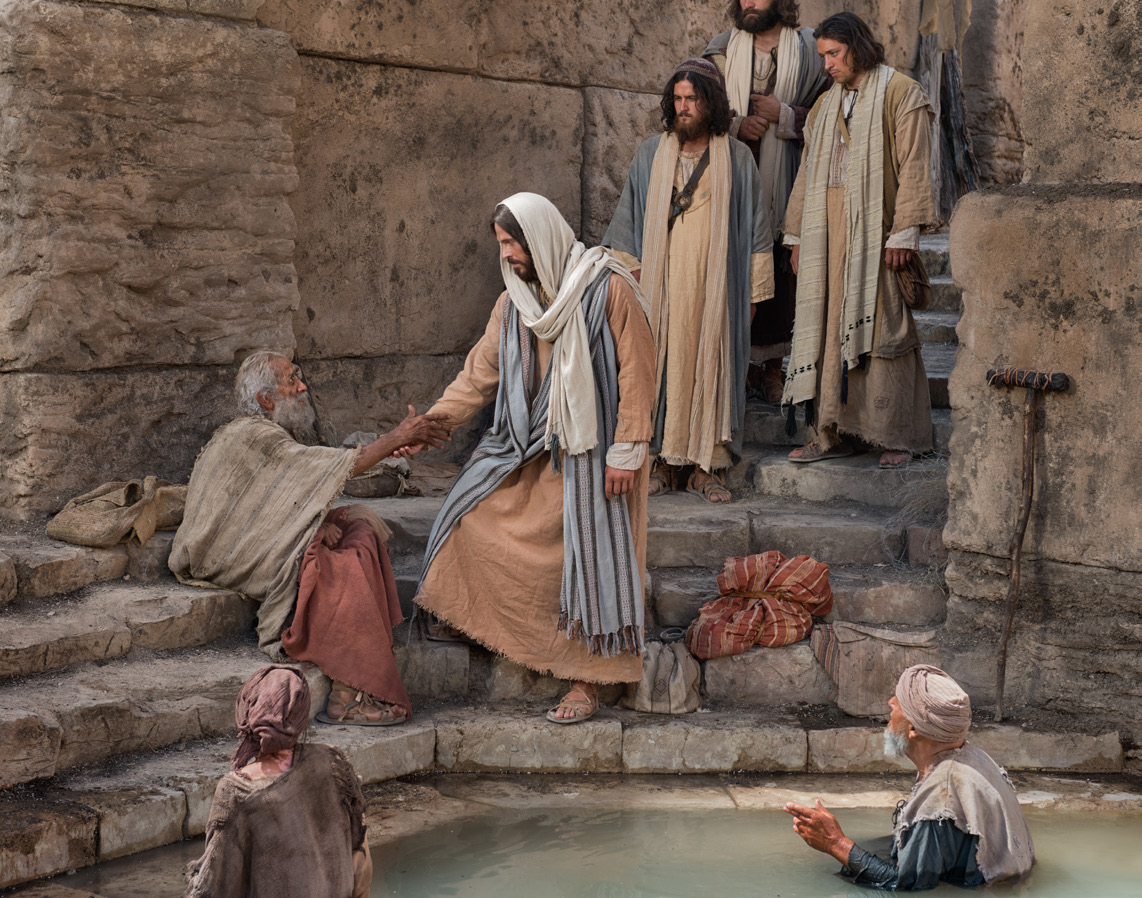 Courtesy of Matt Reier.
Courtesy of Matt Reier.
But what if the young people trespass nonetheless? What if instead of living within the walled city, the budding sinners find themselves on the other side of the wall—on the outside? What had been a protection against sin now becomes a barrier against a return to the realm of happiness and righteousness. They see people around them cheerful and happy, quite complacent about their righteous lives, while the young people feel cut off with nowhere to go except to wander in the dark and misty plain.
As a young faculty member at Brigham Young University, I was asked to talk to a group of Mutual girls about navigating the teenage years. I spent my time erecting the wall against sin higher and higher, thicker and thicker, determined to keep them in the realm of safety. In the question period, an older man, probably a bishop, asked what should happen if one of the girls found herself in transgression? What should she do? I suddenly reversed myself and started throwing down all the bricks I had used to build the wall, trying to open a way for the transgressors’ return.
 Christina Smith, Emotions and Feelings.
Christina Smith, Emotions and Feelings.
In my younger years, our teachings on repentance were not very helpful. We had simple formulas about recognizing our sins, perhaps confessing them, renouncing them, compensating those we had hurt, and then being restored to the favor of God. We would sum it all up with four R’s or something like that. It all seemed so pat and beside the point, nowhere descriptive of the actual dilemmas and struggles of sin.
Teachers are hindered in teaching forgiveness by their inhibitions about retelling stories from their own sinful pasts. In evangelical churches, the master narrative for many sermons is a confession: I was a sinner, lost and depraved, until I found Jesus, who rescued me. The darker the sins, the more compelling the story of salvation. In our church, leaders don’t talk about their sinful pasts and their moment of repentance. We fear we will license young people to sin freely in the belief that they will be able to return as did their leaders before them. But not hearing stories of actual sin, repentance, and forgiveness, Latter-day Saint sinners are at a loss what to do. For many young people, the conventional teachings on repentance do not sound real.
So what are our young people to do when they find themselves living a double life, outside the walls as it were, and unsure if they know the way back? They look at their parents and perhaps their brothers and sisters and friends and see them looking happy and confident, living in the light, while they the sinners are miserable, angry or fearful, living in darkness.
The problem is that these double-lived young people think that they are outside the gospel when they sin, beyond the pale, on the other side of the wall. Actually, they are never more in the gospel than in their times of sins. Those are the moments when the gospel of Jesus Christ swings into action—it is at its best when people have sinned. That is when Atonement and forgiveness really count. Christ came not to heal those who are whole but those who are sick.
The problem then is how to teach the gospel of Atonement and forgiveness in a way that young people will recognize that this is the gospel they need when sin troubles their lives. I would wager that nearly all young people need the Atonement fairly desperately. If it is not a hidden life of sin, they need it to sustain their strivings. Many young people these days live in a world of high aspiration. They are taught to strive for more—more skill in music, more victories in sports, greater personal beauty, more popularity, better grades. No matter how hard they try they fall short, and without meaning to hurt, the people who love them increase the pressure.
Striving in itself is not evil. As a people, Latter-day Saints try harder. A friend of my wife’s once told her she could not stand Latter-day Saints because they were such overachievers. We build it into our theology and into our songs. We say our goal is godly perfection. Our favorite song for children says, “I am a child of God, and so my needs are great.” It is the godly striving within us that gives us a perpetual great need. The more we are told how great we are, the greater our sense of inadequacy.
In that world, we will inevitably feel that we perpetually fall short. We never can achieve all we expect of ourselves, or our parents and teachers expect of us. That means we will always feel inadequate, flawed, lacking. That kind of world is only tolerable with something like the Atonement available to us. We need the assurance that some power or force outside of ourselves will pick us up and make us whole when we feel imperfect and flawed.
We have to realize that the very idea of the Atonement implies that sin and shortcomings are built into the structure of the universe. The reason we have an Atonement is that God foresaw sin as part of life. The Atonement has no meaning outside of a fallen and imperfect humanity.
Our sense of falling short is not a sign of our personal failure but a necessary and inevitable part of life. Once God sets up a standard of glory to which we can aspire, he sets up a metric of failure. We all fall short of the glory of God. That feeling of imperfection which haunts us is an inevitable byproduct of God’s effort to lead us to eternal life and our desire to be like him. We must accept that as a fact of our existence and rely on the Savior whom he has sent to redeem us from our sins.
